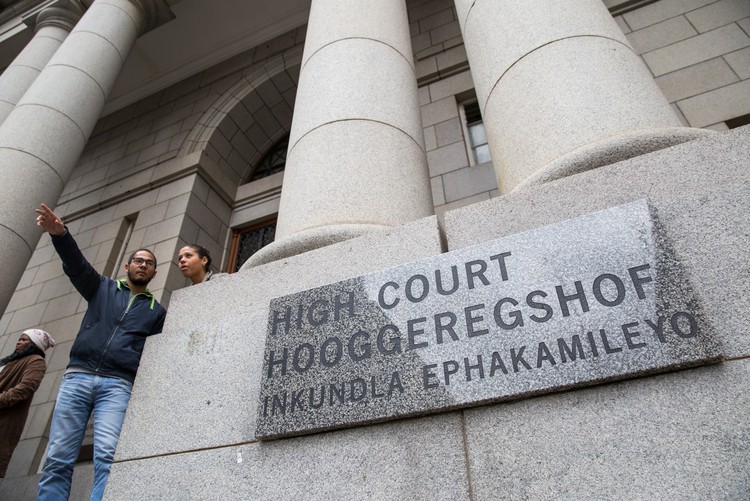

The backlog of late judgments at the Western Cape High Court in Keerom Street, Cape Town, keeps growing. Archive photo: Ashraf Hendricks
3 September 2018
The backlog of late judgments at the Western Cape High Court keeps getting worse. In December there were 11 judgments that had been outstanding for more than six months. The number increased to 16 in June. As of 30 August it stood at 17 — actually 18, but because we are aware of a good reason for one of the judgments being late, we’ve omitted it from our count. (Download the latest list of reserved judgments)
Our six-month lateness measure is a generous one. According to norms laid out for judges in 2014 by Chief Justice Mogoeng Mogoeng, judges should hand down their judgments “no later than three months after the last hearing”.
Acting Judge Nolita Kose has seven late judgments according to the list, down from nine in June. One of her judgments was reserved on 29 July 2016, more than two years ago. A judgment of hers where the applicant is the Reserve Bank has been outstanding since 22 August 2016.
Judge Siraj Desai has three late judgments, one of which was reserved on 14 November 2016. Judge Nathan Erasmus also has three late judgments. Acting Judge Keith Engers has two late judgments and Judge Taswell Papier has one.
If we use the three-month standard, there are 44 late judgments. In June it was 32.
Judge Hlophe’s office responded that Acting Judge Kose has six, not seven, outstanding judgments (the list definitely contains seven, but it is possible that between the list being constructed and Judge Hlophe’s response to us, that Acting Judge Kose delivered a judgment).
“The Judge President and the leadership of Cape Law Society of Cape Town had meetings. Acting Judge Kose undertook to deliver all her reserved judgments by the end of September 2018,” Judge Hlophe’s office wrote.
This is the third time we are running the list of late judgments. Getting responses from judges is difficult. Previously we’ve been scolded for sending requests for comment directly to the judges with late judgments. So this time we followed protocol and emailed the offices of the Judge President of the Cape High Court John Hlophe and Chief Justice Mogoeng Mogoeng.
Last time (June), one of the judges responded. He expressed regret that his judgment was late, and has since fulfilled his promise to deliver it in August. This time we only received the response from Judge Hlophe’s office with regard to Acting Judge Kose’s late judgments.
Neither the Chief Justice — who is ultimately responsible for ensuring the Judge Presidents do their job — nor his deputy have ever responded to our requests for comment.
Judges are remunerated well. The lowest paid earn at least R1.8 million per year. A Judge President gets well over R2 million, and the Chief Justice nearly R3 million annually. They get a government car, and generous vacation time. They also get a pension for life at their retirement salary, that increases with inflation, which as far as we can tell is a perk without peer in the public service. Being a judge is one of the most respected positions in the country. We do not begrudge judges any of this. The integrity of the justice system depends on them.
But in return for all this, judges have to do their job. That means delivering judgments in good time, and being responsive to public requests. The Cape High Court judges whose judgments are late must be held accountable by Judge President John Hlophe. He and Chief Justice Mogoeng Mogoeng have a duty to be responsive to media enquiries. Judge Hlophe’s response only partially addressed our question, by dealing with only one judge. Judge Mogoeng failed to respond at all. They are not above public scrutiny.
Currently GroundUp only receives the list of reserved judgments in the Western Cape High Court. We wish to see the lists from other courts. We will treat sources confidentially.